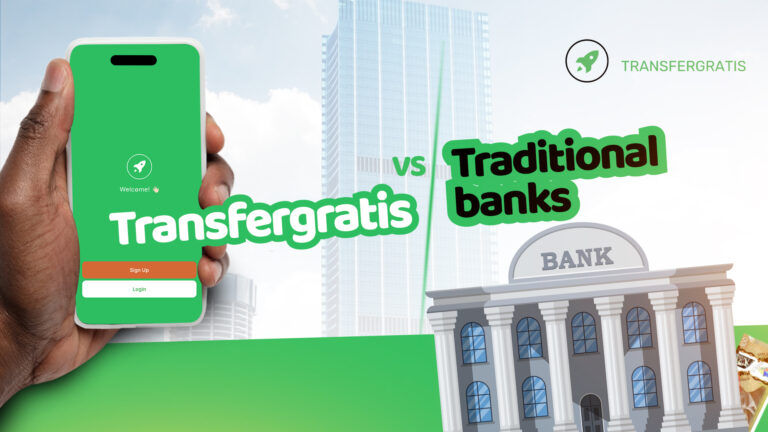Transferring money online is convenient but requires caution to avoid common mistakes.

Online money transfers have become commonplace in our daily lives, facilitating financial transactions worldwide . However, this convenience can sometimes be marred by avoidable errors that compromise the security and efficiency of transactions. To successfully navigate this ever-changing financial landscape, it’s crucial to understand the five common mistakes to avoid when transferring money online. By anticipating and sidestepping these potential pitfalls, you can ensure that your funds reach their destination securely and smoothly, while maximizing peace of mind in managing your money remotely.
1 - Not verifying the recipient's details
Failing to carefully verify the recipient’s details before making an online money transfer is a critical mistake that can have serious consequences. When you overlook this crucial step, you risk sending funds to the wrong person or experiencing delays due to incorrect information.
Imagine filling out all the necessary fields to send money, thinking you’ve correctly entered the recipient’s details. However, a simple typographical error in the full name, incorrectly entered bank account number, or a wrong email address can easily lead to significant complications.
Firstly, if the recipient details are incorrect, retrieving the funds can be extremely difficult. Financial institutions and money transfer service providers often have strict policies regarding transaction errors, and the rectification process can be lengthy and cumbersome. In some cases, funds may even be lost permanently if the incorrect recipient refuses to return them.
Secondly, errors in recipient details can also lead to additional fees. Money transfer services may charge fees to correct erroneous information or to cancel and refund the transaction. These fees can accumulate quickly and impact your budget allocated for the transfer.
Furthermore, delays caused by incorrect information can have a negative impact on your financial plans, especially if the transfer is intended for an urgent or significant transaction, such as paying a bill or supporting a loved one abroad.
To avoid this mistake, it is recommended to always take the time to carefully verify every detail of the recipient before confirming the transfer. Double-check if necessary, especially when making transactions for the first time or if the recipient details have changed since your last transaction. Investing this extra time can make all the difference in ensuring that your money safely reaches its intended destination, without any hurdles or unnecessary complications.
2 - Ignoring fees and exchange rates
Ignoring fees and exchange rates during an online money transfer is a mistake that can have a significant financial impact. The associated fees and applied exchange rates can often go unnoticed when initiating a transaction, but they can have substantial repercussions on the final amount received by the recipient.
Firstly, transfer fees vary considerably between services and depend on several factors such as the amount sent, the payment method used, and the destination of the transfer. These fees can be fixed or calculated as a percentage of the amount sent. Ignoring these fees can lead to unpleasant surprises when the amount received by the recipient is less than expected after deducting the fees.
Furthermore, the exchange rates applied during international transfers are a crucial consideration. Exchange rate fluctuations can have a significant impact on the final amount received by the recipient, especially when currency conversion is involved. Online money transfer service providers may apply markups on exchange rates to generate additional revenue, meaning the displayed rate can differ slightly from the actual market exchange rate. Ignoring these differences can result in a received amount lower than anticipated, particularly for large-sum transfers.
Moreover, some online money transfer services offer the option to choose between several exchange rate options, including fixed rates or rates that fluctuate in real-time. Choosing the wrong option can also affect the amount received by the recipient.
To avoid this mistake, it’s essential to take the time to compare fees and exchange rates among different online money transfer service providers. Carefully read the details of the costs associated with each transaction and verify how exchange rates are calculated. Opt for transparent services that clearly disclose their fees and offer competitive and fair exchange rates. By exercising due diligence in this step, you can maximize the amount sent and minimize additional fees, ensuring a more cost-effective and satisfying online money transfer experience.
3 - Using an unsecured Wi-Fi network
Using an unsecured Wi-Fi network during an online money transfer poses a major risk to the security of your personal and financial information. Public Wi-Fi networks, such as those found in cafes, hotels, or airports, are often unsecured, meaning that data you transmit can be intercepted by malicious third parties.
When you use an unsecured Wi-Fi network to conduct an online money transfer, you potentially expose sensitive information such as your bank account details, credit card information, or login credentials to cybercriminals who may exploit such data for financial fraud or other illicit activities.
The risks associated with using unsecured Wi-Fi networks include:
Data interception: Cybercriminals can use interception techniques to capture information you send or receive over the unsecured Wi-Fi network. This includes passwords, credit card numbers, and transaction details.
Phishing: Unsecured Wi-Fi networks can be used to conduct phishing attacks, where users are prompted to disclose their personal or financial information through fake websites or fraudulent emails.
Unauthorized access: Cybercriminals can also exploit vulnerabilities in unsecured Wi-Fi networks to access your devices and compromise your security more extensively. To minimize these risks, it is strongly recommended to use a Virtual Private Network (VPN) when accessing sensitive information or conducting online financial transactions via public Wi-Fi networks.
A VPN encrypts your internet connection, making it more difficult for third parties to monitor or intercept your online activities. Additionally, always ensure to access secure websites (identified by “https://” in the URL) and avoid entering sensitive information on unsecured web pages when connected to a public Wi-Fi network.
By taking these precautions, you can significantly enhance the security of your online financial transactions and reduce the risks of personal information theft or fraud, ensuring a safer and more protected online money transfer experience.
4 - Neglecting to verify the security of the website
Neglecting to verify the security of the website during an online money transfer can expose your personal and financial information to significant risks.
Website security is essential to ensure that your sensitive data is protected against cyber threats and malicious attacks. Here are some aspects to consider when checking the security of a site before initiating a money transfer:
SSL Certificate (Secure Sockets Layer): Verify the presence of an SSL certificate on the website. This is indicated by an URL starting with “https://” and a closed padlock icon in the browser’s address bar. SSL ensures that all data exchanged between your browser and the website is encrypted and secure against interception by third parties.
Privacy and Security Policy: Make sure to review the site’s privacy and security policy. Look for information on how your personal data will be used, stored, and protected. Reputable websites typically have dedicated sections for these policies to inform their users.
Reputation and User Reviews: Check reviews and feedback from other users about the online money transfer site. Previous user experiences can provide valuable insights into the reliability and security of the service.
Two-Factor Authentication (2FA): Verify if the site offers two-factor authentication (2FA) to enhance the security of your account. This feature requires a second form of verification (such as a code sent via SMS) in addition to your password to access your account, thereby reducing the risk of unauthorized access
Updates and Maintenance: Secure websites are regularly updated to fix security vulnerabilities and enhance protection against online threats. Ensure that the site you are using is maintained and updated regularly to ensure continuous protection of your data.
Neglecting to check these security aspects can make your information vulnerable to phishing attacks, malware, and other forms of online exploitation. By taking the time to verify the site’s security before each transaction, you can enhance your confidence in the security of your online money transfers and reduce the risks of compromising your personal and financial information.
5 - Forgetting to save transfer confirmations
Forgetting to save transfer confirmations after completing an online transaction can potentially lead to significant complications and make it difficult to resolve any issues that may arise. These confirmations are essential documents that serve as proof of the transaction and can be crucial in various scenarios:
Proof of Payment: Transfer confirmations provide documented proof that the transaction was initiated and completed successfully. They often include details such as the date, time, amount sent, recipient, and transaction reference number. In case of disputes or issues, this information can be essential to demonstrate that the payment was made
Tracking Timelines: By keeping transfer confirmations, you also have the ability to track the status of the transaction. If the recipient does not receive the funds within the expected timeframe, these documents can serve as a starting point to investigate the reasons for the delay and to contact the online money transfer service provider for explanations.
Financial Reconciliation: For your own financial management, retaining transfer confirmations allows you to track and verify outgoing transactions from your account. This facilitates reconciliation with your bank statements and helps you maintain an accurate record of your expenses and money transfers.
Fraud Detection: In case of fraud or suspicious activity on your account, transfer confirmations can serve as evidence that unauthorized transactions have occurred. They can also help identify transaction details such as the time and IP address used to initiate it, which is crucial for promptly reporting and resolving any fraudulent activity.
To avoid neglecting to save transfer confirmations, it is recommended to establish a systematic method for archiving these documents. You can electronically save them on your computer, email them to a secure address, or even print and store them in a dedicated folder. This simple yet crucial precaution can help you avoid unnecessary hassle and facilitate the secure and organized management of your online financial transactions.
Avoiding these five mistakes when conducting an online money transfer can not only save you time and money, but also ensure the security and reliability of your financial transactions. Vigilance and foresight are essential to ensure that your funds are securely transferred to the intended recipient, on time, and with minimal fees. By following these tips, you can enhance your online money transfer experience and minimize potential risks associated with this essential modern financial management process.”







